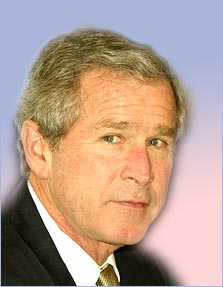
US President George W Bush's visit to India from March 1 to 3 was a landmark event.
The last American President from Bush's Republican party to visit India was Richard Milhous Nixon in 1969. But while that journey was undertaken in an atmosphere of animosity -- between the two governments as well as between Nixon and then Indian prime minister Indira Gandhi -- the Bush visit came on the crest of never seen before cordiality between the world's largest and richest democracies.
The much talked about nuclear deal was just one facet to the visit. Other aspects to the cooperation between New Delhi and Washington, DC -- strategic, economic, technological and agricultural -- were given a boost with the president's passage to India.
Rediff.com invited many experts in India and the US to discuss the Bush visit on the Rediff Chat.These included:
Deputy chief of Mission at the American Embassy, New Delhi Robert O Blake, President Emeritus and Co-Founder of the Henry L Stimson Center Michael Krepon, the chief architect of the Nuclear Nonproliferation Act of 1978 Leonard Weiss, Executive Director of the Arms Control Association Daryl Kimball, Pakistani strategic analyst Moeed Yusuf, CPI-M MP Nilotpal Basu, South Asia expert Sumit Ganguly, Pakistani strategic analyst Ayesha Siddiqa-Agha, Senior Fellow in Foreign Policy Studies at the Brookings Institution Stephen P Cohen, South Asia specialist at John Hopkins University Walter Andersen, Former Indian Ambassador to Washington Naresh Chandra, Strategic analyst Brahma Chellaney, Deputy Editor of The Hindu, Siddharth Vardarajan, Ambassador TP Sreenivasan, CPI National Secretary Doraiswamy Raja, and The Wall Street Journal's Senior Correspondent for South Asia Peter Wonacott
The Bush visit: Complete coverage | Chats |The nuclear deal